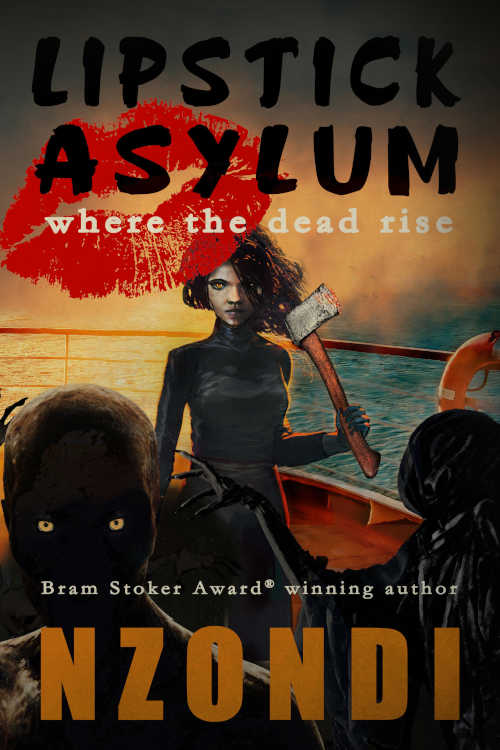9 things publishers want to see (right away) in your manuscript

by Nzondi
Editor’s note: Because agents and publishers get so many submissions, they can’t invest much time in any one manuscript. That’s why, when sending in your story for consideration, you only have a few pages to make a big impression.
 So what do agents and publishers want to see right up front? Here, author Nzondi gives us the nine most important things to include as early on as possible:
So what do agents and publishers want to see right up front? Here, author Nzondi gives us the nine most important things to include as early on as possible:
1. Name of the protagonist. Many have said otherwise, stating that it is boring and not creative, however, I have found that if you’re trying to get past the slush pile, there is nothing more irritating to the agent or publisher reading your manuscript than not knowing who the protagonist is, or worse, not knowing if your character is male or female.
2. All of the main characters. You should introduce (or make a reference to) all of the main characters by page ten.
3. Age of the protagonist. Especially if you are writing young adult (YA). Publishers and agents want to know right away the age group of the target audience (for YA, it is twelve to eighteen).
4. The ghosts of protagonist. What pains the character? This information not only helps the reader empathize with the character but also allows the reader to relate to the character’s pains. Needless to say, the pain must be an emotional one that most people in your target audience can relate to. Remember, the thought process that many publishers and entertainment producers have is, “Show me something I’ve seen before, but differently.” Also, you must insert—masterfully, or as best as you can—the internal and external conflict of the character, thus showing the beginnings of the story arc, which sets up the arc’s path and destination.
Before page ten, we should know some of the demons that plague the protagonist, and show things that makes the character likable. Unless you want your protagonist to be an unlikable character, which is probably not the best idea (unless she is an anti-hero, but even then, be cautious). Also, writing a scenario that makes the reader—in this case the publisher or agent—like the character is also key. For example, when the hero helps his neighbor get a cat out of a tree even after telling the neighbor about his allergy to cat fur, the reader can’t help but like your hero. See how powerful that tool is?
Note how long this point is. That’s because I feel it is very important!
Allow readers to immediately see your character in the workplace: a teacher teaching, a witch bewitching, a vampire feeding.
5. Setting. The setting is more than the place, it is the environment, the weather, time of day, and date. You can barely get through the first paragraph of any good novel and not know if it is hot or cloudy, cold, or windy.
The weather, as well as your descriptive word choices, will help set the tone whether you want the mood to be dark, or sarcastic, colorful, humorous, or Gothic.
The time of day is simply letting the reader know if it is day, or night, morning, or midnight. The date can be literal:
On October 29th, 2008, I helped my mother kill her abuser, Dad.
Or it can be more ambiguous:
Long, long ago, in a world where zombies were as common as the cold, I’d finally learned how to throw a curve ball.
6. Inciting incident or call to action. Sometimes, these are two different occurrences, but many times, they are the same. In either case, this is where your plot truly begins, letting the agent or publisher know what your story is about. Wait until after page ten to do this and it is highly plausible that your story will not catch their attention.
7. The five senses and thematic elements. Mold the tone and have the opening images set up the mirror images of what the character will have to walk into upon his or her adventure, the normal world before they enter the Strange New World. Many first time authors simply have the character state the theme.
8. Your character’s character. If your protagonist is a badass, show the reader why within the first six pages. But also remember that it is so important to integrate the ghosts, along with characteristics the reader can relate to, or you chance making the reader not care about your numero uno character. Not good.
9. Your character’s job. Lastly, if the character is employed, either use an immediate reference to what their job is or allow the reader, in this case the Agent or the Publisher, to see the protagonist in their workplace immediately. For example, a witch bewitching, a vampire feeding, a teacher instructing a class, an agent on a mission, an athlete in a competition.
Nzondi (Ace Antonio Hall) is an American science fiction and horror author. His novel Oware Mosaic won the Bram Stoker Award for Superior Achievement in Young Adult fiction, the most prestigious award given to horror writers in the world. He is the first African-American to win in a novel category, including the YA novel category.
A former director of education for NYC schools and the Sylvan Learning Center, the award-winning educator earned a BFA from Long Island University. Nzondi is currently bi-coastal, living in New York and Los Angeles.